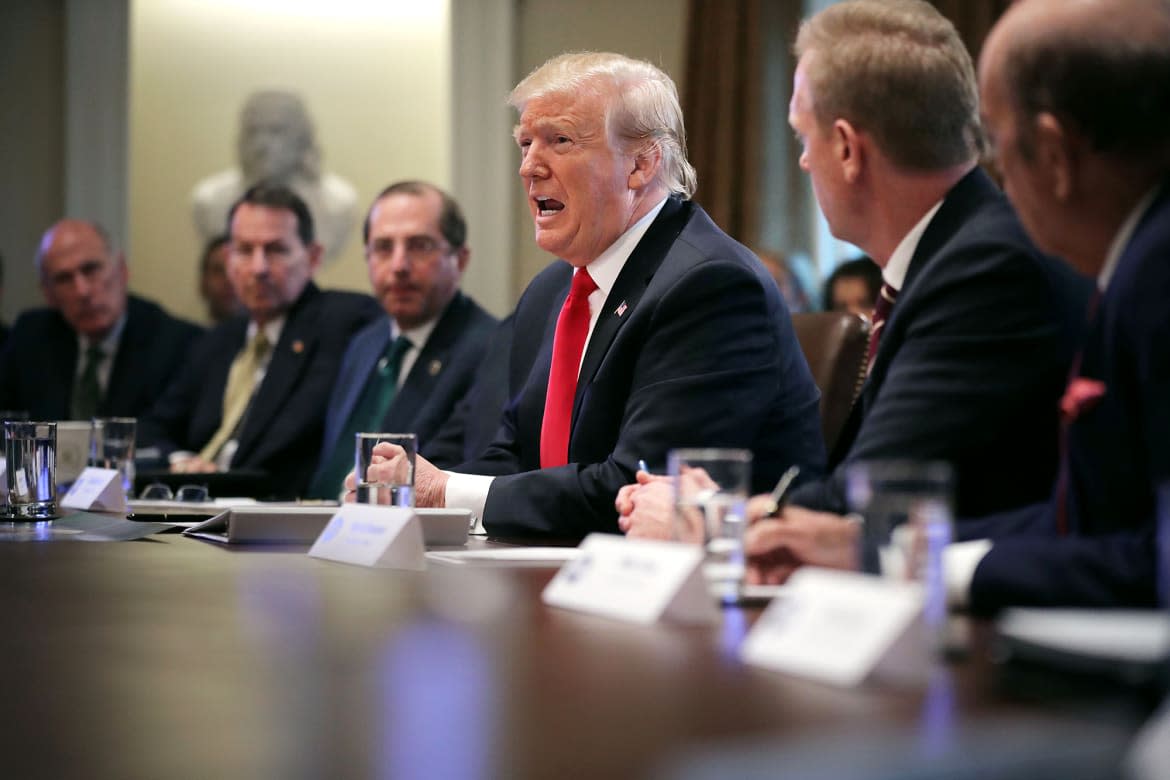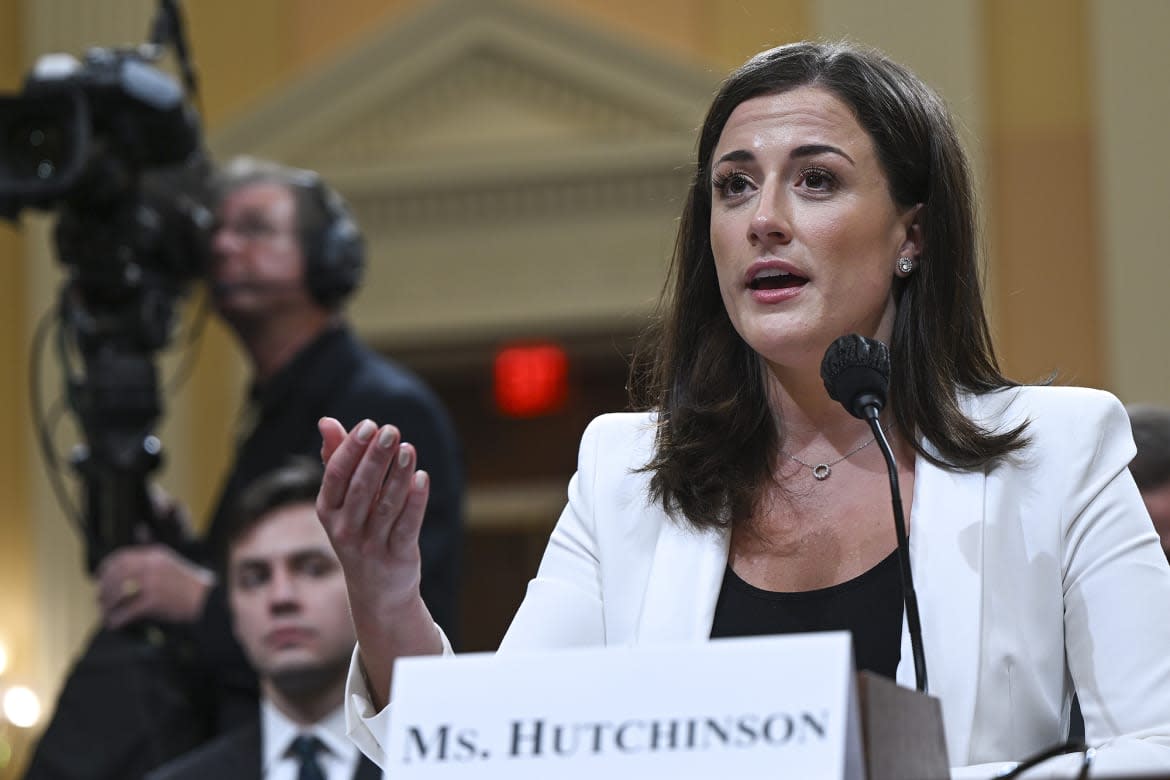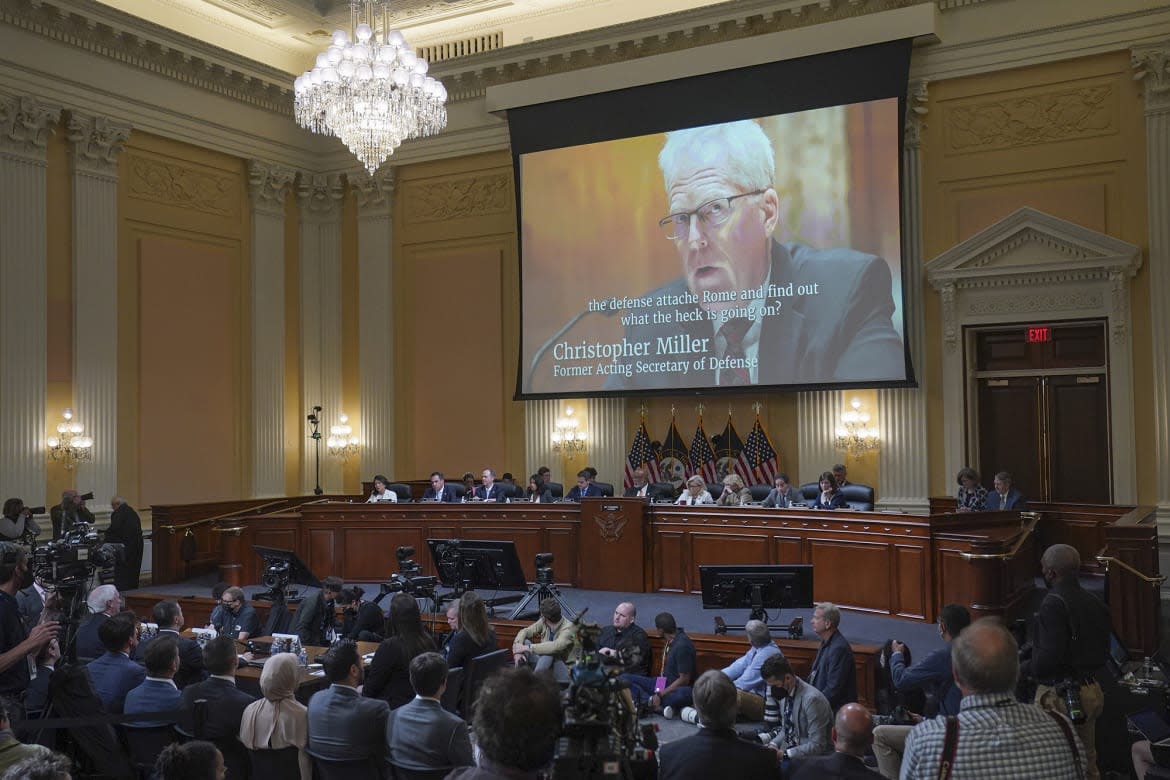You’re Going to Miss the Deep State When It’s Gone

Donald Trump wants to replace the myth of a “deep state” cabal that answers to no one with the reality of a government controlled by a legion of hand-picked loyalists who answer only to him.
The plan, long apparent to those working closely with Trump, has been detailed in an Axios series by reporter Jonathan Swan as a sweeping government overhaul that could push as many as 50,000 career officials out of their jobs and move the country a giant step closer to dictatorship.
During his presidency, Trump was regularly frustrated by the fact that government officials—appointees as well as career officials in the civil service, the military, the intelligence community and the foreign service—were an impediment to the autocratic impulses about which he often openly fantasized. (Remember the time he said he wished his staff would “cower” like North Korean dictator Kim Jong Un’s? He wasn’t kidding.)
What Comes Next After Biden’s Foreign Policy Marathon
Trump would rail about the “deep state,” promoting the idea that has circulated on the hard right for years of a permanent government that was accountable to no one. It reached a wider audience from the fever swamp of Alex Jones’ InfoWars show, and was “legitimized” (in the minds of the true believers) in a book by former congressional staffer Mike Lofgren called, The Deep State: The Fall of the Constitution and the Rise of a Shadow Government. In the book, Lofgren argued that “big institutions, inside and outside of government, are so entrenched it is hard to bring any real change. Political options are limited.”
But Trump’s real issue with career professionals and even many of the senior officials he himself appointed was not that they “reported to no one,” but that instead they actually understood to whom they did report: the American people. They took their oaths of office seriously, which on a regular basis during the Trump years meant that they foiled some of Trump’s craziest or most dangerous plans by pointing out they were unconstitutional, illegal or gravely damaging to U.S. national interests.

Trump in January 2019.
Time and time again, when Trump’s inner circle clicked their heels and said “yessir” and the GOP-led Congress ignored its constitutional responsibilities, really bad ideas were ultimately stopped, slowed or diluted by senior government officials who actually understood the concept and responsibilities of public service.
We have seen extreme examples of how this worked in the course of the Jan. 6 Committee hearings.
Senior officials in the Justice Department, the White House counsel’s office or even junior White House staffers like Cassidy Hutchinson stepped up to try to stop Trump from mounting a coup against the government he had in 2016 been elected to lead.
Some debate whether what these people did was heroic or worthy of praise given that many had supported and enabled Trump in other circumstances. Michelle Goldberg outlined this point of view in “The Myth of the Good Trump Official” in The New York Times.

Cassidy Hutchinson, a top former aide to Trump White House Chief of Staff Mark Meadows, testifies during on June 28.
I would suggest that we need to be open to the idea that sometimes people with whom we do not agree politically, and/or those who support policies which we may even find abhorrent, are capable of doing good and that they deserve credit for it—because it is in our interest that people do step up and do the right thing when the stakes are highest.
Or to put it another way, if, as F. Scott Fitzgerald once said, “the test of a first-rate intelligence is the ability to hold two opposed ideas in mind at the same time and still retain the ability to function,” it is a sign of first-rate grasp of politics that we are able to acknowledge that sometimes those with whom we disagree sometimes do good things, just as it is possible that those with whom we agree do bad ones.
Since we benefit every time someone does something good, we should encourage that behavior, particularly when, for example, the survival of our democracy is at stake.
That said, the coup attempt was not the only time Trump was frustrated and ultimately kept from doing something disastrously ill-conceived by the human guardrails throughout the U.S. government. Not by a long shot. In fact, it is no exaggeration to say that multiple conflicts, crimes, and human tragedies were averted throughout the Trump years by people quietly doing their jobs, outside the limelight, often as part of a daily struggle with Trump and his inner circle by a wide cross-section of members of his own cabinet, sub-cabinet, senior political appointees, and career officials.
Indeed, while many of these people could and should have drawn more attention to Trump’s contemplated crimes and horrifically misguided policy impulses, the arguments made by many of them that they had to stay in place to keep things from going off track is certainly understandable. After all, that is what some of them were called upon to do every day.
Further, as Trump and those closest to him grew increasingly frustrated with such officials, they set in motion efforts to replace them with lackeys—stooges who placed Trump ahead of the Constitution, the American people, the institutions they served and, often, common sense.
To take another Big Lie-related example, remember the time acting Defense Secretary Chris Miller pressed a colleague to look into claims that Italian satellites were siphoning off American votes? Or how about the move to place environmental lawyer Jeffrey Clark atop the Department of Justice to help advance the Big Lie? In fact, there were an increasing number of such puppet picks being made during the third and fourth year of Trump’s term in office, from moving the unqualified Richard Grenell to be Acting Director of National Intelligence (DNI) to replacing him with even less qualified John Ratcliffe, or from making former Devin Nunes staffer Kash Patel acting Deputy DNI to making him Miller’s chief of staff. Trump also made a familiar practice of appointing loyalists to acting roles atop the Department of Homeland Security.

A video of former acting secretary of defense Christopher Miller is shown on a screen during the fifth hearing held by the House Jan. 6 committee on June 23.
I have recently completed a book about how career staffers and appointees worked together to defuse dangerous Trump ideas—from going too easy on Russia to the plan to blackmail Ukraine’s President Volodymyr Zelensky, from wanting to launch spur of the moment attacks on North Korea to wanting to install an alligator-filled moat along our southern border, from seeking to suppress data on COVID to wanting to direct aid for it and other natural disasters to regions based on whether they supported Trump or not.
In speaking to scores of officials who served under Trump, a repeated refrain from cabinet members to rank and file bureaucrats was that they knew that if Trump were re-elected he would eradicate all potential impediments to advancing his agenda. Introducing late in the administration the idea of reclassifying tens of thousands of federal employees as “Schedule F”—thereby making them easier to fire and replace—was a centerpiece of this effort. (My book is called American Resistance: The Inside Story of How the Deep State Saved the Nation and you can find out more about it here.)
Put a Fork in Donald Trump—the Ex-President Is Done
As the Swan’s reporting in Axios notes, President Joe Biden undid that effort, but Trumpworld is planning to restore it immediately should they regain power.
The core point is this: As bad as Trump was when he took office, he did not know anything about how the U.S. government works. Now he and those closest to him do. They know that dedicated career officials and appointees who have long worked in and around government are perhaps the most important remaining check Trump or another extreme-right GOP president would encounter.
Because of the dysfunction of our minority-dominated Senate, the radical views of the GOP in the House, and our conservative-stacked Supreme Court—other than voters, it is often only those within the government who respect the law and are in a position to challenge dangerous ideas or abuse who can impede our drift toward being an authoritarian state.
In other words, we must recognize that Trump does not want to stop the “deep state” because it is a threat to Americans. He wants to stop it because it is one of the last things that stands between him and his desire to rule like the thugs he emulates.
Get the Daily Beast's biggest scoops and scandals delivered right to your inbox. Sign up now.
Stay informed and gain unlimited access to the Daily Beast's unmatched reporting. Subscribe now.
